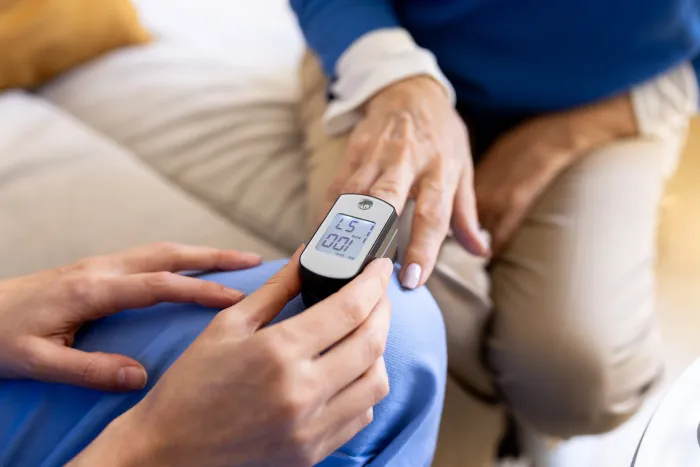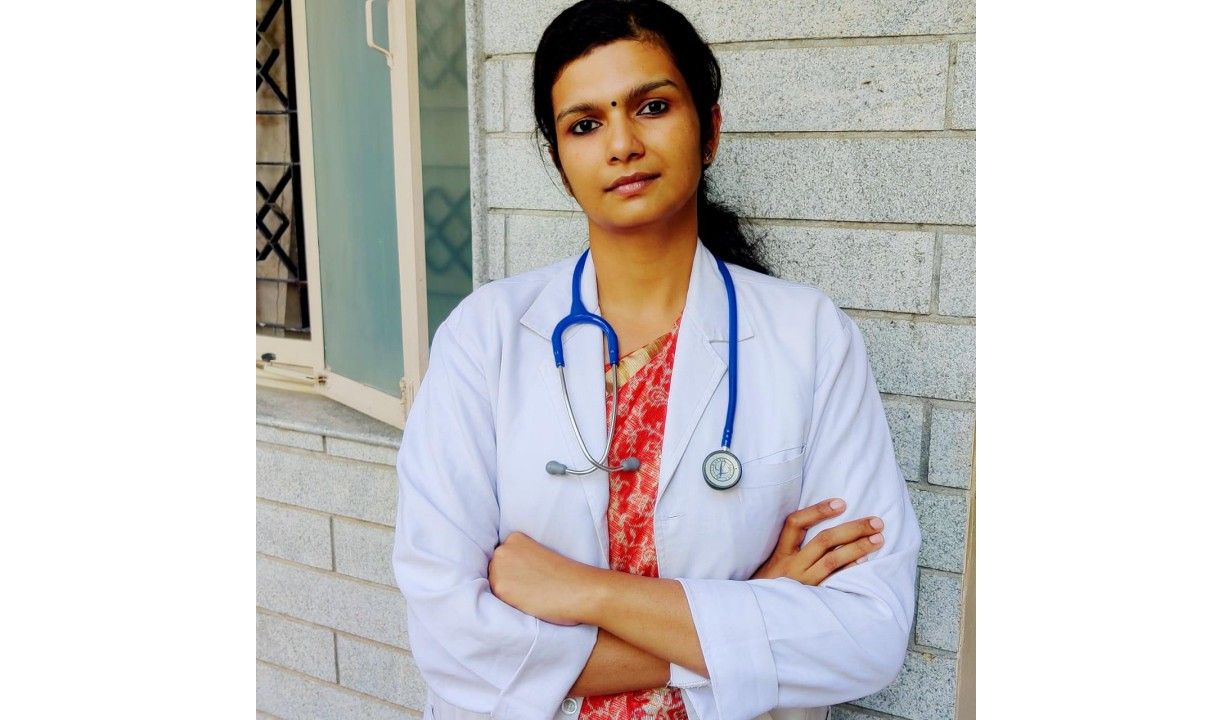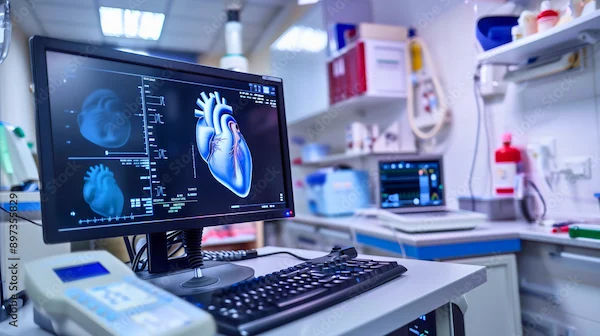What Leads to a High Heart Rate
Discover what causes a high heart rate, from stress and dehydration to certain medical conditions. Learn when a fast heartbeat is normal and when to seek medical advice.

Written by Dr. J T Hema Pratima
Reviewed by Dr. Dhankecha Mayank Dineshbhai MBBS
Last updated on 13th Jan, 2026

Introduction
Your heart is your body’s relentless metronome, constantly beating to keep you alive. But what happens when that rhythm accelerates unexpectedly? A high heart rate, medically known as tachycardia, can feel alarming—a sudden flutter in your chest, a pounding in your ears, or a general feeling that something is off. While often a harmless response to everyday triggers like exercise or stress, a persistently elevated pulse can sometimes signal an underlying health issue. This article delves into the myriad causes of a high heart rate, from your morning coffee to more serious medical conditions. We’ll help you understand the difference between a normal physiological response and a potential red flag, guide you on when to seek help, and provide practical tips for managing your cardiovascular health. Understanding the "why" behind your racing heart is the first step toward finding your rhythm again.
Understanding Your Heart Rate: What's Normal?
Before we explore the causes, it's crucial to define what a "high" heart rate actually means. For most adults, a normal resting heart rate ranges from 60 to 100 beats per minute (BPM). Well-trained athletes often have lower resting rates, around 40-60 BPM, because their efficient heart muscle doesn't need to work as hard to pump blood. A consistently high resting heart rate, generally above 100 BPM, is classified as tachycardia.
How to Check Your Pulse Accurately
To check your pulse, place your index and middle fingers on your wrist, just below the base of your thumb, or on your neck, to the side of your windpipe. Press lightly until you feel the throbbing. Count the number of beats in 30 seconds and multiply by two to get your BPM. For the most accurate resting heart rate reading, do this first thing in the morning before you get out of bed.
Factors That Influence Resting Heart Rate
Your baseline pulse isn't static. It's influenced by several factors:
Age: Heart rate tends to decrease from infancy through adulthood.
Fitness Level: As mentioned, athletes have significantly lower rates.
Body Position: Resting, sitting, or standing can cause slight variations.
Emotional State: Anxiety or excitement can temporarily elevate it.
Consult a Specialist for Personalised Advice
Common Everyday Causes of a High Heart Rate
Often, a spike in your heart rate is a perfectly normal reaction to your environment or activities.
Physical Exertion and Exercise
This is the most common and healthy reason for a high pulse rate. During exercise, your muscles demand more oxygen-rich blood. Your heart obliges by beating faster and more forcefully to meet this demand. This is a sign of a responsive and healthy cardiovascular system.
Stress, Anxiety, and Panic Attacks
When you perceive danger or feel stressed, your body releases adrenaline (the "fight-or-flight" hormone). This powerful chemical causes your heart to race, your breathing to quicken, and your muscles to tense—all preparing you to face a threat. For those with anxiety disorders, this response can be triggered inappropriately, leading to episodes of anxiety, heart rate spikes, or even panic attacks.
Caffeine, Nicotine, and Other Stimulants
Your morning latte or energy drink is a common culprit. Caffeine is a stimulant that blocks adenosine, a brain chemical that makes you feel tired, and can temporarily increase your heart rate and blood pressure. Similarly, nicotine in tobacco products stimulates the adrenal glands to release adrenaline, causing a high heart rate and constricted blood vessels.
Dehydration and Its Effect on the Heart
When you're dehydrated, the volume of your blood decreases. To maintain blood pressure and circulate this smaller amount of blood effectively, your heart must pump faster. This is why you might notice your heart racing during a hot day or after a workout without adequate fluid intake. Severe dehydration is a significant reason for a high heart rate and requires immediate attention.
Underlying Medical Conditions That Cause Tachycardia
When a rapid heart rate isn't linked to an obvious trigger, it could point to an underlying health condition.
Fever and Infections
Your body raises its temperature (a fever) to fight off infection. This elevated metabolic state requires more energy and oxygen, forcing your heart to work harder and faster. It's common to experience a high heart rate with even a minor fever.
Heart-Related Conditions (Arrhythmias, Heart Disease)
This is a primary category of concern. Various arrhythmias (irregular heart rhythms) can cause tachycardia. These include:
Atrial Fibrillation (AFib): A rapid, irregular beating of the heart's upper chambers.
Supraventricular Tachycardia (SVT): A broad term for arrhythmias originating above the heart's ventricles.
Ventricular Tachycardia: A more serious condition originating in the lower chambers.
Thyroid Problems: Hyperthyroidism
Your thyroid gland regulates your metabolism. An overactive thyroid (hyperthyroidism) essentially pushes your body's systems into overdrive, leading to symptoms like unintentional weight loss, nervousness, heat intolerance, and a persistently high resting heart rate.
Anemia and Low Blood Pressure
Anemia occurs when you don't have enough healthy red blood cells to carry adequate oxygen to your tissues. To compensate for this lack of oxygen, your heart pumps faster. Similarly, if you have low blood pressure (hypotension), your heart may beat faster to try to raise your blood pressure to a normal level.
Symptoms that Accompany a Concerning High Heart Rate
A fast heart rate alone isn't always a problem. It's the accompanying symptoms that often signal a need for medical attention.
When a High Heart Rate is an Emergency
Seek immediate medical help if your rapid heart rate is accompanied by:
Chest pain or discomfort
Severe shortness of breath
Fainting or dizziness
Pain radiating to your arm, neck, or jaw
These could be signs of a heart attack or other life-threatening arrhythmia.
How is a High Heart Rate Diagnosed?
If you're experiencing persistent tachycardia, a doctor will work to find the root cause. The process often starts with a simple ECG or EKG (electrocardiogram), which records the heart's electrical activity and can identify rhythm abnormalities.
Blood Tests to Check for Underlying Causes
Since conditions like hyperthyroidism and anemia are common causes, blood tests are a fundamental diagnostic tool. Apollo24|7 offers a convenient home collection for tests like a Complete Blood Count (CBC) to check for anemia or Thyroid Function Tests (TFT) to assess thyroid health, making it easier to get the answers you need without a lab visit.
Managing and Lowering Your Heart Rate Immediately
For a sudden, non-emergency spike (like from anxiety), these techniques can help:
Deep Breathing: Slow, deep breaths can activate your vagus nerve, which helps control heart rate.
Hydration: Slowly sip a glass of cold water.
Avoid Triggers: If you notice caffeine causes palpitations after eating a certain meal, avoid it.
Conclusion
A high heart rate is a common experience with a wide range of causes, from the benign to the serious. Understanding the context is key. That jolt of adrenaline during a scary movie or the sustained pulse during a good workout is your body functioning exactly as it should. However, a heart that consistently races while at rest, or one that accelerates with troubling symptoms, deserves attention. Listening to your body is the first step. By recognizing the triggers, from lifestyle factors to potential health conditions, you empower yourself to take action. Whether it's drinking more water, managing stress, or seeking professional guidance, addressing the root cause is the path to a calmer, healthier rhythm. If your symptoms are persistent or concerning, consulting a doctor online with Apollo24|7 can provide a convenient and expert first step toward evaluation and peace of mind.
Consult a Specialist for Personalised Advice
Consult a Specialist for Personalised Advice

Dr. Mainak Baksi
General Practitioner
13 Years • MBBS , MD (MPH)
Howrah
Mainak Baksi Clinic, Howrah
(50+ Patients)

Dr. Dhankecha Mayank
General Practitioner
6 Years • MBBS
Hyderabad
Apollo 24|7 Clinic - Telangana, Hyderabad

Dr. Rajib Ghose
General Physician/ Internal Medicine Specialist
25 Years • MBBS
East Midnapore
VIVEKANANDA SEBA SADAN, East Midnapore

Dr. Shiv Krishna Mitra
General Practitioner
15 Years • MBBS GEN. MED. PGDRM, MCH
Kolkata
Samaritan Clinic, Kolkata

Dr. Anamika Krishnan
General Practitioner
11 Years • MBBS, DNB (Paediatrics) ,Diploma in child Health
Bengaluru
UMC (United Medical Center), Bengaluru


